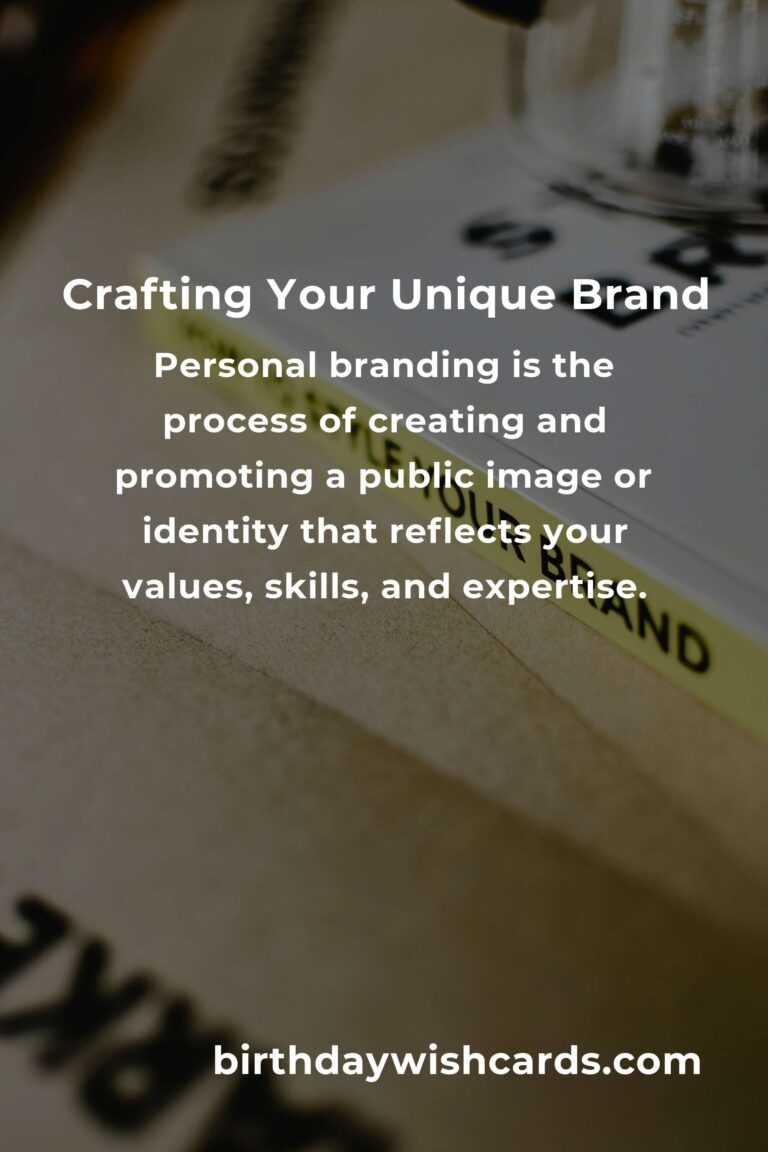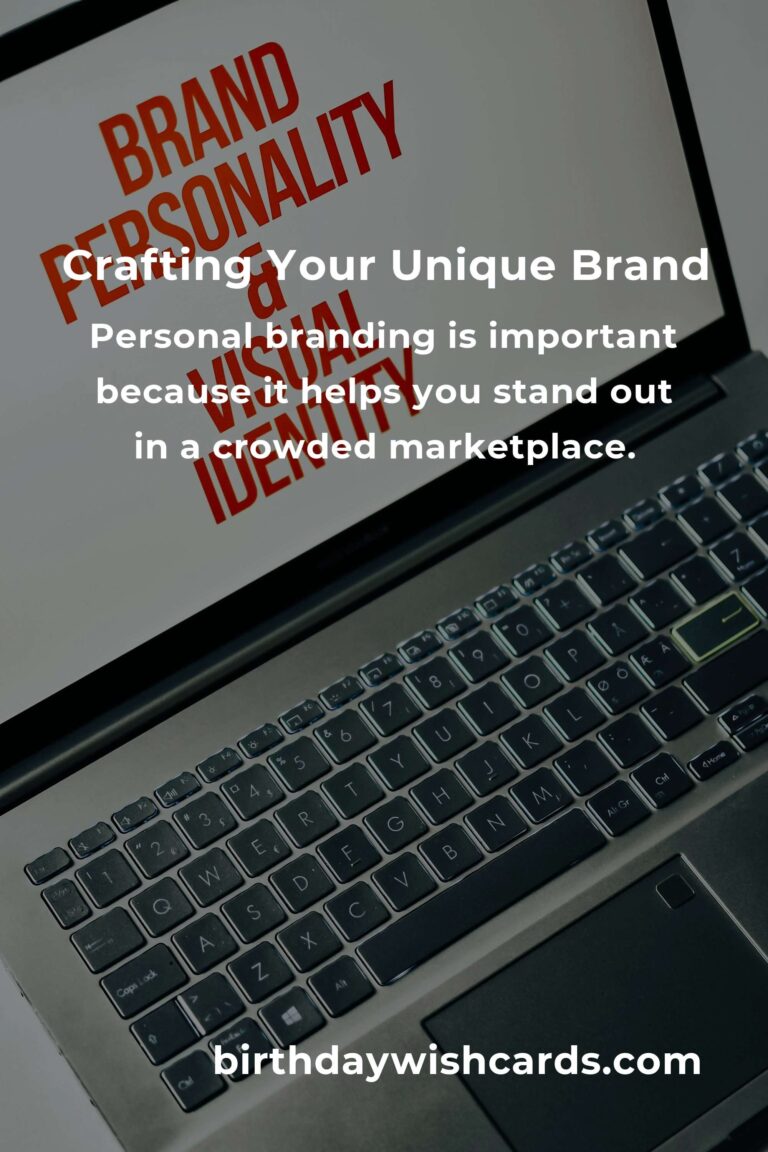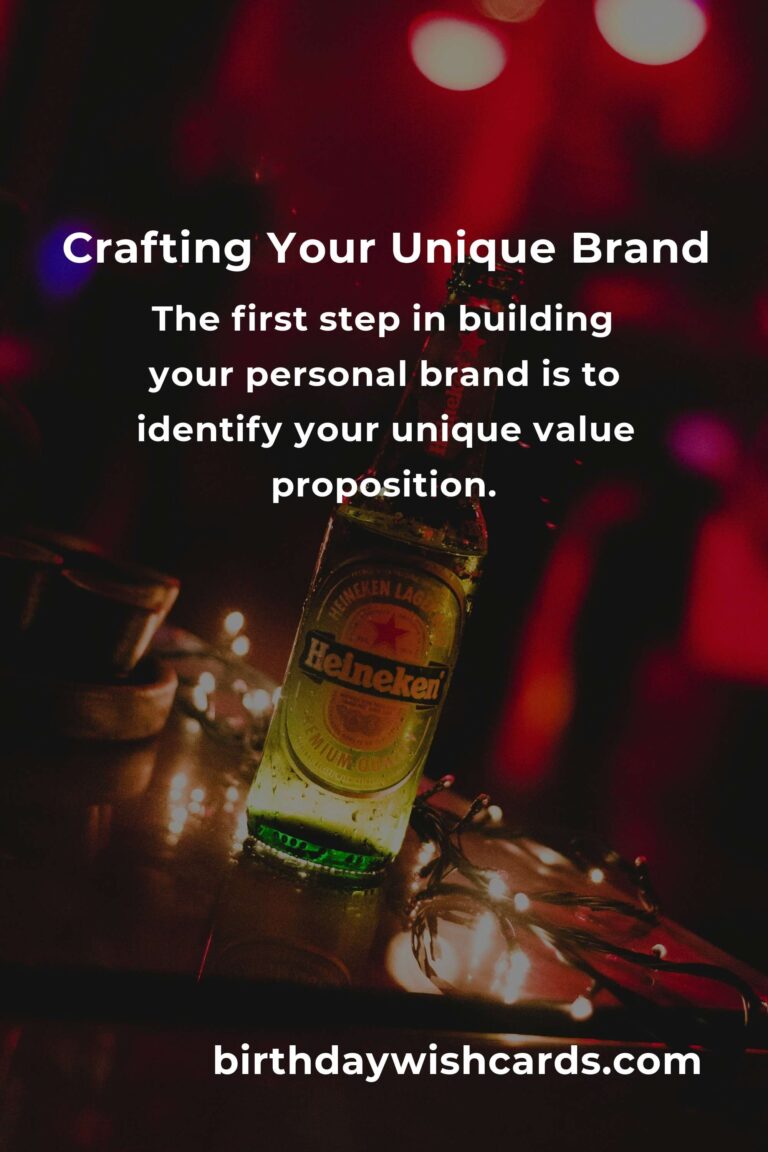
In today’s digital age, personal branding has become a crucial aspect of professional success. Whether you’re a freelancer, entrepreneur, or aspiring influencer, establishing a strong personal brand can set you apart from the competition and open doors to new opportunities.
What is Personal Branding?
Personal branding is the process of creating and promoting a public image or identity that reflects your values, skills, and expertise. It involves strategically presenting yourself to the world in a way that resonates with your target audience and aligns with your professional goals.
Why is Personal Branding Important?
Personal branding is important because it helps you stand out in a crowded marketplace. A strong personal brand can enhance your credibility, build trust with your audience, and establish you as a thought leader in your industry. It can also lead to more job offers, collaborations, and business opportunities.
Steps to Building Your Personal Brand
1. Define Your Unique Value Proposition
The first step in building your personal brand is to identify your unique value proposition. What makes you different from others in your field? What skills, experiences, or perspectives do you bring to the table? Clearly defining your unique value proposition will help you communicate your brand message effectively.
2. Identify Your Target Audience
Understanding your target audience is crucial to building a successful personal brand. Who are you trying to reach? What are their needs, preferences, and pain points? By identifying your target audience, you can tailor your brand message to resonate with them and meet their expectations.
3. Develop Your Brand Message
Your brand message is the core of your personal brand. It should be clear, concise, and consistent across all platforms. Your brand message should reflect your unique value proposition and resonate with your target audience. Consider using storytelling techniques to make your brand message more engaging and memorable.
4. Build Your Online Presence
In today’s digital world, having a strong online presence is essential for personal branding. Create professional profiles on social media platforms such as LinkedIn, Twitter, and Instagram. Regularly share valuable content that showcases your expertise and engages your audience.
5. Network and Collaborate
Networking and collaboration are key components of personal branding. Attend industry events, join professional groups, and connect with influencers in your field. Collaborate on projects or create content with others to expand your reach and enhance your credibility.
6. Be Authentic and Consistent
Authenticity is essential to building trust with your audience. Be genuine in your interactions and stay true to your values. Consistency is also important; ensure that your brand message and image are consistent across all platforms and interactions.
Common Personal Branding Mistakes to Avoid
While building your personal brand, it’s important to avoid common pitfalls. These include being too self-promotional, not engaging with your audience, and lacking a clear brand message. Additionally, avoid trying to be everything to everyone; focus on your niche and unique strengths.
Conclusion
Building a personal brand is a journey that requires time, effort, and dedication. By defining your unique value proposition, understanding your target audience, and consistently delivering your brand message, you can create a powerful personal brand that opens doors to new opportunities and career success.
Personal branding is the process of creating and promoting a public image or identity that reflects your values, skills, and expertise. Personal branding is important because it helps you stand out in a crowded marketplace. The first step in building your personal brand is to identify your unique value proposition. Understanding your target audience is crucial to building a successful personal brand. In today’s digital world, having a strong online presence is essential for personal branding. Authenticity is essential to building trust with your audience.
#PersonalBranding #BrandingTips #ProfessionalGrowth #DigitalPresence













